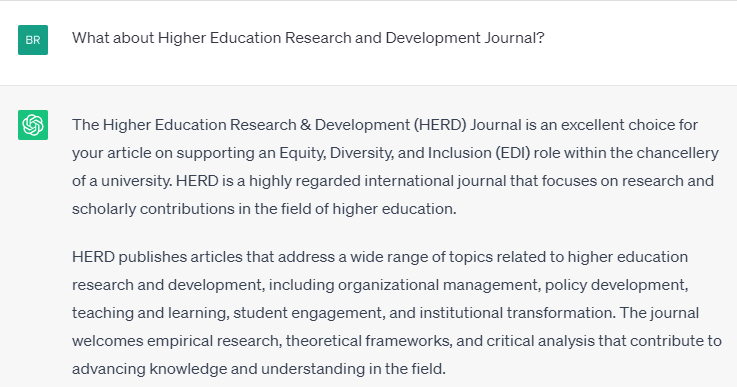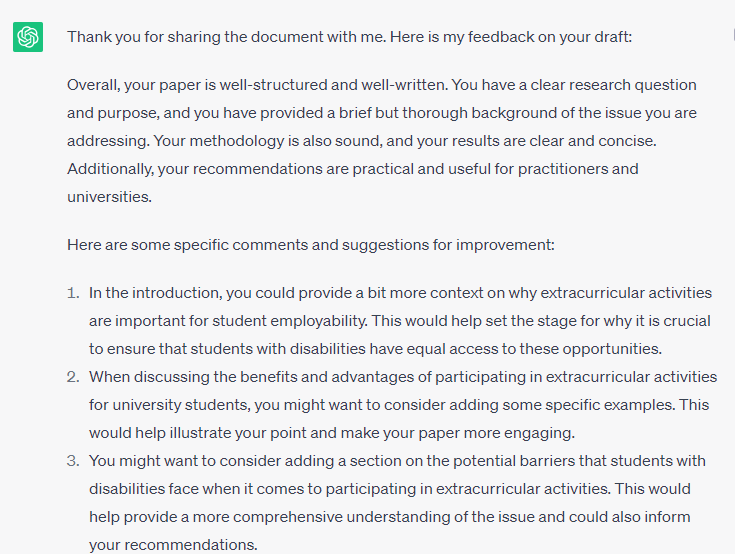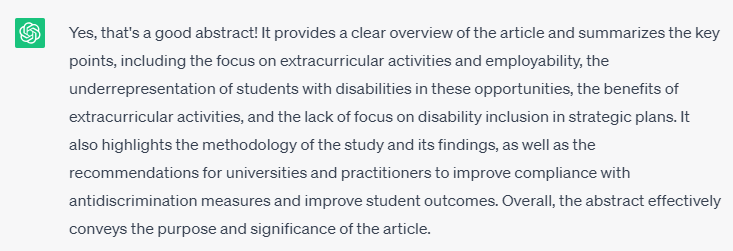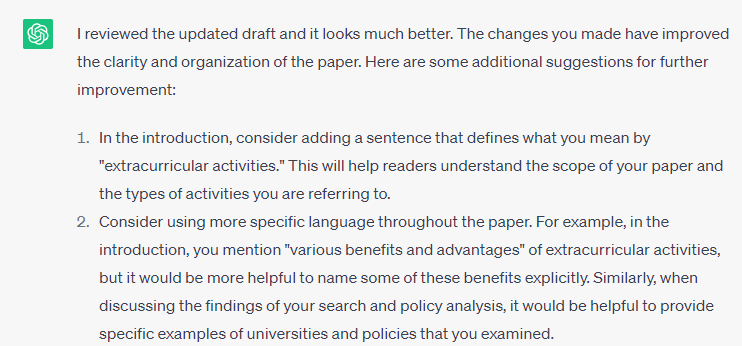
Not replacing but enhancing: using ChatGPT for academic writing
You may also like
Academic writing for publication can be stressful and confusing. As someone who publishes across disciplines such as law, health and safety, and business, I used to spend a significant amount of time adapting to different styles, structures and requirements. However, since the launch of ChatGPT, I have been excited about the potential of this artificial intelligence (AI) to enhance this process and improve my outputs.
- Collection: AI transformers like ChatGPT are here, so what next?
- Spotlight: advice from around the world for improving academic writing
- THE podcast: pointers on writing and publishing for academics
In my recent published papers I have used several strategies for smoother acceptance and fewer necessary edits. Here are my top strategies for embracing AI in academic publishing.
1. Ask useful questions to obtain optimal results
To achieve the best outcomes, be specific in your queries and request the AI to reformulate responses. For example, you can prompt it to generate an abstract for an academic journal with a word limit of 250 or ask it to adjust the tone to a more academic style. You can even ask for a more concise version of your text (like I did for this!).
2. Explore the most suitable journal options
AI can help you to generate ideas and discover appropriate academic journals, especially when aiming for diverse publications. The process is simple: provide a brief explanation of your article in a few sentences and ask the AI to recommend the most relevant journals. You can specify the level or field you wish to target. Once you receive a list of suggestions, review them individually and enquire why the AI has proposed a particular journal. If a journal you had in mind doesn’t appear on the list, ask the AI for its opinion on that specific journal to gather more insights. (ResearchRabbit is another AI that can help with this topic.)

3. Identify key points
Some articles can be long and challenging to decipher, making it difficult to identify their main messages and key points. As a language-processing model, ChatGPT can extract nuances and provide you with essential insights from reports and articles. While the “control F” function can be helpful for exact matches, ChatGPT can help you to pinpoint valuable information within the text. This is particularly valuable for disabled individuals like me who experience difficulties with language processing.
4. Seek assistance in structuring your paper
Journals often have different expectations regarding the presentation of information. While conventional elements, such as the methodology, results and analysis, are standard, recommendations (often from peers or supervisors) might involve manually searching for articles and following their paragraph-by-paragraph structures. However, this approach is time-consuming and does not always yield clear results. Here, ChatGPT can help. Provide the name of the journal or link relevant articles, then ask the AI to give a general structure or a paragraph-by-paragraph template that you can use as a basis for manually inputting your writing.

5. Leverage AI to express ideas more clearly
Some days, articulating thoughts can be challenging, especially during the brainstorming process or when you are trying to decipher the significance of findings. With its language-processing capabilities, ChatGPT can act as a conversation partner to help you tease out these elements and develop your thoughts and ways of expression. The key lies in asking the right questions to prompt valuable insights from the AI.

6. Request constructive feedback
As a neurodiverse person, I find that decision paralysis and the need for additional feedback can significantly impede my progress. These challenges are further exacerbated by the busy schedules of my management team, on whom I often rely for support. AI has empowered me to take control of the feedback process myself.
7. Check your work after it has been processed
It is vital that you thoroughly reread and edit the output. Although AI is powerful, it can also change nuance or misunderstand elements. You need to ensure that it keeps your message and is accurate. For this article, I made small edits to make the tone less stuffy and to clarify my personal feelings on the topic.

What not to do when using AI in academic writing
Don’t rely on ChatGPT to create your referencing list or allow it to dictate your references, as they most likely do not exist. Programmes such as ResearchRabbit, which my dean seems to be enjoying, can assist with research processes. Such AI tools can help to lay the foundation for your research, but it is crucial to apply your own knowledge and skills to ensure the appropriateness of the references and their alignment with academic standards.
I firmly believe that AI is the new calculator – a powerful tool that, when used correctly, can revolutionise academic publishing.
Disclaimer: I composed this article without any AI assistance. But you can employ these same concepts to help structure your own Campus article and uncover key points effectively.
I did use AI to help with the clarity, length and grammar after writing.
Brooke Szucs is a research assistant and diversity in education advocate with lived experience in the TC Beirne School of Law and Business School at the University of Queensland.
If you would like advice and insight from academics and university staff delivered direct to your inbox each week, sign up for the Campus newsletter.




